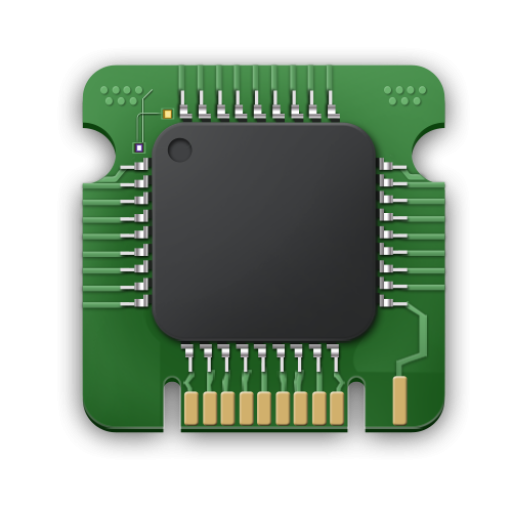The rapid evolution of technology has transformed the way we live, work, and communicate. At the heart of this transformation are Information Communication Technologies (ICTs), which have become the backbone of modern society and business operations.
ICTs encompass a broad range of technologies, including computing, telecommunications, and audiovisual systems, that enable users to access, store, transmit, and manipulate information. The convergence of these technologies has bridged geographical gaps, revolutionizing global communication and access to information.
As we explore in this comprehensive guide, ICTs play a pivotal role in shaping our digital world. Understanding ICTs is crucial for addressing the digital divide and harnessing the full potential of technology for societal and economic development.
Understanding Information Communication Technologies
The concept of ICT extends beyond just technology; it’s about how we use it to communicate and share information.
Definition and Scope of ICT
Information Communication Technologies (ICT) encompass a broad range of technologies that facilitate communication and access to information. ICT includes not just computing systems, but also telecommunications devices, broadcasting media, and various types of audio and video processing and transmission technologies. The scope of ICT is vast, covering all hardware, software, and networking components that enable the transmission, exchange, and storage of data.
ICT vs. IT: Key Differences
While often used interchangeably, ICT and Information Technology (IT) have distinct meanings. IT primarily focuses on information processing, storage, and management through computing systems. In contrast, ICT has a broader scope, encompassing not just IT, but also all forms of communication technology. This includes telecommunications devices, broadcasting equipment, and audiovisual technologies. The convergence of computing and telecommunications has blurred the lines between IT and ICT, leading to integrated systems that handle both information processing and communication functions.
Understanding these differences is crucial for businesses and organizations when planning their technology infrastructure and developing digital strategies. By recognizing the broader scope of ICT, organizations can better leverage communication technology to enhance their operations and competitiveness.
What Are Information Communication Technologies: Components and Infrastructure
The components and infrastructure of ICT include a complex interplay of hardware, software, and telecommunications systems that enable seamless information exchange. This intricate ecosystem supports the global flow of data, voice, and video, facilitating modern communication and information processing.

Hardware Components
Hardware components form the backbone of ICT systems, comprising devices such as servers, computers, routers, and switches that process and transmit data. These physical elements are crucial for the functioning of ICT infrastructure, providing the necessary processing power and connectivity. The quality and capacity of hardware components directly impact the performance and reliability of ICT systems.
Software and Applications
Software and applications are vital components of ICT, enabling the efficient use of hardware resources and providing users with the tools needed to process and manage information. From operating systems to specialized applications, software plays a critical role in leveraging ICT capabilities. The development and implementation of software solutions are essential for maximizing the potential of ICT infrastructure.
Networks and Telecommunications
Networks and telecommunications infrastructure are fundamental to ICT, facilitating the exchange of information across different locations. The convergence of previously separate network technologies, such as telecommunications and computer networks, has led to the development of unified systems that efficiently handle voice, video, and data communications. The evolution of telecommunications systems from analog to digital has significantly enhanced the capacity and reliability of ICT infrastructure, with the internet serving as a global backbone for information exchange.
The development of advanced networks, including 5G and beyond, promises to further enhance ICT capabilities, offering faster data transfer rates and lower latency. As ICT continues to evolve, the importance of robust and secure networks will only continue to grow, supporting new applications and services that rely on technology for efficient information exchange.
The Evolution of Information Communication Technologies
The evolution of Information Communication Technologies (ICT) has been a transformative journey, revolutionizing how we communicate and access information. This evolution has been marked by significant technological advancements that have shaped the modern world.
Historical Development
The historical development of ICT is rooted in the early days of computing and telecommunications. The merging of networks and the creation of the Internet in the 1980s was a pivotal moment. Key events include the formalization of the TCP/IP protocol suite in 1982, the introduction of the Domain Name System (DNS) in 1983, and the registration of the first .COM domain name in 1985. These developments laid the foundation for the modern internet.
Key Milestones in ICT Advancement
Several key milestones have driven ICT advancement. The development of the World Wide Web and graphical browsers expanded internet accessibility. The evolution of mobile communication technologies, from early cellular systems to modern smartphones, has created new paradigms for personal computing and communication. More recent advancements include cloud computing, social media platforms, and IoT technologies, which have further expanded ICT capabilities. For more information on the different types of information technology, you can visit this resource.
These advancements have transformed ICT from primarily academic and military applications to a global system accessible to businesses and individuals worldwide.
ICT Applications in Modern Society
The impact of ICT on modern society is multifaceted, influencing sectors such as business, education, and healthcare. As we continue to embrace technology, it’s essential to understand its far-reaching implications.
Business and Industry Applications
ICT has revolutionized the business landscape by enhancing data analysis, improving service delivery, and streamlining management processes. Companies now rely on ICT for efficient operations, better customer engagement, and gaining a competitive edge. For instance, the adoption of cloud computing and big data analytics has enabled businesses to make informed decisions and drive innovation.
According to a report by TechTarget, ICT has become crucial for businesses to stay competitive in today’s digital economy.
Education and Learning
In the education sector, ICT has transformed the way we learn and teach. With the integration of digital tools and online resources, educational institutions can now provide more access to information and enhance the learning experience. E-learning platforms, virtual classrooms, and digital libraries are just a few examples of how ICT is improving education. Moreover, ICT enables students to access a wealth of information and educational content, facilitating a more personalized and effective learning process.
Healthcare and Medicine
The healthcare sector has also benefited significantly from ICT applications. The deployment of 5G mobile networks and technologies such as Big Data is improving patients’ lives. For example, telemedicine has expanded access to healthcare services, particularly for patients in rural or underserved areas. Electronic health records (EHRs) and health information systems have improved patient data management, clinical decision-making, and continuity of care. Additionally, medical imaging technologies and diagnostic tools are enhancing diagnostic accuracy and treatment planning.

As highlighted by TechHack, technology continues to play a vital role in shaping the future of healthcare.
The Global Impact of ICT
As the world becomes increasingly interconnected, the role of ICT in shaping global landscapes cannot be overstated. ICT has emerged as a critical factor in the development of countries, influencing various sectors including economy, education, and healthcare.
Economic Contributions
ICT significantly contributes to the economic development of countries by enhancing productivity, improving business processes, and creating new opportunities. The adoption of ICT tools and services has been linked to increased economic growth, with many nations investing heavily in digital infrastructure to remain competitive in the global economy. For instance, the United Nations reports on the importance of ICT in achieving sustainable development goals.
| Country | ICT Investment as % of GDP | Economic Growth Rate |
|---|---|---|
| United States | 3.5% | 2.5% |
| China | 4.2% | 6.1% |
| India | 3.8% | 7.3% |
ICT Development Index
The ICT Development Index (IDI) is a composite index published by the United Nations that measures the level of ICT development across different countries. It considers factors such as ICT access, use, and skills to provide a comprehensive picture of a country’s ICT landscape.

Digital Divide Challenges
Despite the progress made in ICT development, the digital divide remains a significant challenge. It manifests in various forms, including geographic, economic, educational, generational, and gender-based disparities in ICT access. Addressing these challenges requires concerted efforts to expand ICT infrastructure, enhance digital literacy, and make ICT services more affordable across the world.
To bridge the digital divide, countries must work together with international organizations to implement initiatives that promote equitable access to ICT. This includes investing in infrastructure development and promoting digital skills training.
Advantages and Disadvantages of ICT
The widespread adoption of ICT has transformed the way we live, work, and interact, presenting both opportunities and obstacles that need to be addressed. As we continue to harness the power of ICT, it’s essential to understand its multifaceted impact on society.
Benefits of ICT Implementation
The implementation of ICT has brought numerous benefits across various sectors. In the business world, ICT has enhanced efficiency, productivity, and global connectivity. It has enabled the development of e-commerce, remote work, and digital services, contributing to economic growth. In education, ICT has facilitated online learning, access to vast information resources, and collaborative learning environments. Moreover, ICT has improved healthcare services through telemedicine, electronic health records, and data analysis for medical research.
Key benefits of ICT include:
- Enhanced global connectivity and collaboration
- Increased efficiency and productivity in various industries
- Access to vast information resources and online learning opportunities
- Improved healthcare services through technology
These benefits have significantly impacted people’s lives, enhancing their skills and quality of life. The technology has become an integral part of modern society, driving progress and innovation.
Challenges and Concerns
Despite the numerous benefits, ICT also presents several challenges and concerns. One of the significant issues is security, with risks of privacy breaches, data theft, and cyber-attacks increasing as our reliance on digital technologies grows. The spread of misinformation and disinformation through macro-level communications is another concern. Additionally, the over-reliance on ICT can lead to technology dependence, potentially diminishing certain human capabilities and skills.
| Challenge | Description | Impact on Society |
|---|---|---|
| Security Risks | Increased vulnerability to cyber-attacks and data breaches | Potential loss of sensitive information, financial losses |
| Misinformation | Spread of false or misleading information | Erosion of trust in information sources, social unrest |
| Technology Dependence | Over-reliance on digital tools | Diminished human capabilities, potential for decreased face-to-face interaction skills |
The challenges associated with ICT highlight the need for a balanced approach to its adoption and implementation. By acknowledging these concerns, we can work towards mitigating the negative impacts and ensuring that the benefits of ICT are equitably distributed across different demographic groups and regions.

Future Trends in Information Communication Technologies
ICT continues to evolve at a rapid pace, shaping the world and addressing some of its most pressing challenges. As we move forward, it’s essential to understand the emerging trends that will define the future of ICT and its impact on society.
Emerging Technologies
The next generation of ICT is being driven by several emerging technologies. One of the key areas is the integration of artificial intelligence (AI) into ICT systems, making technology more intuitive and personalized. AI is expected to revolutionize interfaces, enabling more natural human communication with devices. For more insights on predicting future communications technologies, visit ComSoc.
Another significant development is the expansion of next-generation networks, including 5G and beyond, which will provide faster, more reliable connectivity. Satellite-based internet is also expected to play a crucial role in expanding global digital access, especially in underserved regions.

Predictions for ICT Development
As ICT continues to advance, it is predicted to have a profound impact on various aspects of society. The digitalization of industries will lead to new business models and changing patterns of employment and skills requirements. ICT is also expected to play a key role in addressing major global challenges such as climate change, healthcare access, and educational inequality through smart systems and improved resource management.
| ICT Development Area | Predicted Impact |
|---|---|
| Artificial Intelligence | More intuitive and personalized technology interfaces |
| Next-Generation Networks | Faster, more reliable connectivity |
| Satellite-Based Internet | Expanded global digital access |
The future of ICT holds much promise, but it also raises important questions about how societies will manage the ethical and regulatory challenges posed by these rapidly advancing technologies. As we move forward, it is crucial to address these challenges proactively to ensure that the benefits of ICT are realized equitably across the globe.
Conclusion
Ultimately, the significance of information communication technologies lies in their ability to transform our daily lives. ICTs have not only changed the way we communicate and access information, but have also created new career paths for those proficient in technology.
The role of ICT in modern society is multifaceted. On one hand, it has enabled progress by providing resources such as cloud storage and data analytics, which have become fundamental infrastructure for organizations and governments worldwide. On the other hand, it poses challenges that societies must actively manage, such as the digital divide, which increases inequality and limits opportunities.
To ensure that the benefits of ICT are equitably distributed across different countries and populations, it is crucial to address access disparities. Continuous learning and training in digital skills will remain essential as ICT continues to evolve and reshape workplaces and service delivery models.
The United Nations and other international organizations play a vital role in guiding the responsible development and deployment of communication technologies. As ICT continues to evolve, it is clear that its impact on people and society will be profound, presenting both opportunities for growth and challenges that must be addressed.
In conclusion, while technology itself is important, it is the way people use these tools to solve problems, create opportunities, and improve quality of life that ultimately determines their value to society.







